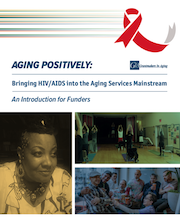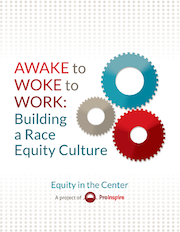Site Search
- resource provided by the Forum Network Knowledgebase.
Search Tip: Search with " " to find exact matches.
The New Jersey Council for the Humanities (NJCH) recently awarded $199,637 in Incubation and Action Grant funding to sixteen organizations. Incubation Grants help organizations plan, research, develop, and prototype public humanities projects and events. Action Grants help organizations implement a wide array of humanities-based projects, including public programs, exhibitions, installations, tours, and discussion groups.<BR><BR>
Public humanities programming allows individuals to engage in lifelong learning and share in the exploration of history, values, cultures, and beliefs. NJCH supports and acts as a resource for cultural and service-oriented nonprofit partners as they bring the public humanities to the residents of New Jersey, harnessing the power of the humanities to strengthen communities.
The Overdeck Family Foundation has announced third-quarter grants totaling $13.5 million.
Six new grants and twenty-seven renewal grants were awarded in support of cost-effective programs with the potential to accelerate improvement in key academic and socioemotional outcomes for all children. Recipients include Future City, a four-month-long afterschool STEM program for grades six through eight, which was awarded $200,000 to increase the number of under-resourced students served, diversify revenue streams, and refine data tracking and reporting practices; Teaching Lab, which will receive $200,000 to pilot a virtual, adaptive, and competency-based delivery model; and Public Impact, which was awarded $700,000 in support of efforts to restructure Pre-K–12 schools to extend the reach of excellent teachers, principals, and their teams to more students, for more pay, within recurring school budgets.
As we navigate today's challenges and opportunities, it's important that we continue to gather, exchange ideas, and move forward the causes we value. We all know how a single conversation can spark a big idea or inspire a new partnership.  That's why you won't want to miss our much-anticipated 2024 Spring Colloquium: Empowering the Future: Harnessing AI and Data for Philanthropic Social Impact - a must-attend gathering for every funder working in New Jersey. Join us for valuable insights and opportunities to connect with colleagues and passionate thought leaders who share your commitment to driving social change.
That's why you won't want to miss our much-anticipated 2024 Spring Colloquium: Empowering the Future: Harnessing AI and Data for Philanthropic Social Impact - a must-attend gathering for every funder working in New Jersey. Join us for valuable insights and opportunities to connect with colleagues and passionate thought leaders who share your commitment to driving social change.
I look forward to seeing you there and engaging in the vibrant discussions and community building opportunities that awaits us.
Thank you to the generosity of our sponsors: Signature Sponsor - PSE&G, Collaborator Sponsor - Wells Fargo, Connector Sponsors - Campbell Soup Company, Sixers Youth Foundation, and Robert Wood Johnson Foundation, and Exhibitor Sponsor - PKF O'Connor Davies. We couldn't do this without you.
We look forward to seeing you there!
Sincerely,
Theresa Jacks, President and CEO
Council of New Jersey Grantmakers


This report from the TCC Group finds that the flexibility, nimbleness, and willingness to collaborate demonstrated by the philanthropic sector over the past year in response to a rapidly changing policy environment could serve as a model for the sector going forward.
Based on interviews with nearly thirty leaders of philanthropy-serving organizations (PSOs), this report found that in the first year of the Trump administration, PSOs and funder collaboratives were called on to keep funders well informed of policy changes. To that end, PSOs have played a critical role in enabling funder learning, dialogue, and action, and have helped accelerate important funder conversations in the areas of diversity, equity, and inclusion; the need to think beyond issue silos; and the foundational benefits of creating space for dialogue across political and ideological divides through nonpartisan civic engagement.
The report also notes that while some funders have remained cautious, taking a "wait and see" approach to how national political changes might affect their grantmaking priorities, a greater number have been moved by rapidly changing policies to consider aligning their "institutional voice" with other grantmakers to maximize their impact.
The Trenton Arts Fund at the Princeton Area Community Foundation has awarded a total of $25,000 in grants to eight nonprofits working to make the arts more accessible to the community.
The Trenton Arts Fund was created in 2018 by John Hatch and his husband, David Henderson, to support arts, culture and history organizations because they believe that when the arts thrive, cities thrive. A seven-person grants committee, whose members live locally and have a background in the arts, reviewed and evaluated all applications and recommended funding eight finalists.
“Our goal was to support emerging and established arts, culture and history organizations in Trenton as they reopen and emerge from the COVID-19 pandemic,” said Hatch. “We also wanted to support and recognize those organizations that focus on our young people in the city. The Trenton Arts Fund received many excellent applications, and we are thrilled to support these eight organizations that are doing extraordinary work in Trenton, bringing the arts to all corners of the city.”
The Rippel Foundation, a national nonprofit operating foundation focused on health system transformation, is pleased to announce grants to nine organizations working to advance health and well-being in New Jersey and other local communities. Nominated by the Rippel Board and staff members, each organization has received $25,000 in unrestricted funds, which will be used toward general operating and programmatic support.
“As an operating foundation, Rippel is particularly delighted to be able to provide support to organizations that are advancing equitable, sustainable approaches to health and well-being in their communities. These organizations embody the principles and culture of stewardship that Rippel is dedicated to promoting—creating the conditions that all people need to thrive by focusing on vital conditions like access to care, stable housing, food security, a healthy environment, employment, and educational opportunity,” said Laura Landy, president and CEO of The Rippel Foundation. “Rippel has a 70-year history and strong roots in New Jersey, and our work has had a transformative impact on communities throughout the nation. It is gratifying to know that these funds will contribute to the well-being of our neighbors here in our own backyard as well as residents in other deserving local communities.”
The Provident Bank Foundation awarded more than $620,000 in grants to 43 nonprofit organizations during its first cycle of giving in 2022.
The awardees were located in 13 counties in New Jersey as well as three in Pennsylvania and one in New York.
The foundation’s awards went to its three priority areas: community enrichment, education and health, and youth and families. The amount of the grants ranged from $5,000 to $25,000.
Executive Director Samantha Plotino said the foundation appreciates the impact these organizations have on their communities.
“A number of organizations focused on creating meaningful and enriching change within their communities have received support from the foundation’s Major Grants,” she said. “We look forward to seeing the impact that this next cycle of grants has on recipients, the communities they serve and the nonprofit landscape.”
The Princeton Area Community Foundation awarded about $2 million in Community Impact and COVID-19 Relief & Recovery Fund grants to local nonprofits.
More than 60 organizations working on a broad variety of needs in the community, including arts education, community building, education, food insecurity, health, supporting senior citizens and other vulnerable populations, and youth development received this funding, made possible by generous community contributions.
Funding was mainly unrestricted, giving organizations an opportunity to address the challenges of economic uncertainty due to the pandemic and inflation. Unrestricted grants in this round provide the flexibility organizations need to use the funding where it is most needed, which will help them build financial and programmatic resiliency.
“These nonprofits are doing impactful work in region, helping the most vulnerable among us,” Jeffrey Vega, CEO and president of the Community Foundation, said. “We are able to award these grants thanks to generous donors who have created funds over the last 30 years to support our community grantmaking and leadership.”
